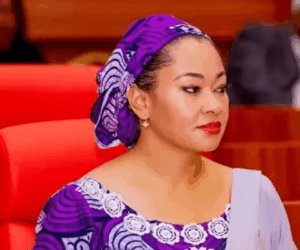The Joint Admissions and Matriculation Board’s (JAMB), age restriction policy for university admissions has continued to spark national debate, raising critical questions: whose interests does it truly serve, students, institutions, or the system?
Tunji Alausa, the minister of education, on assumption of office, announced the federal government will work with JAMB and the universities to ensure that people matriculating into Nigerian universities will arrive at 16 years.
“So, we will not be going with the 18 years; we will go back to what we have before which is 16 years,” Alausa said.
JAMB has begun implementation of the policy stipulating that only candidates aged 16 years and above by August 2025 are qualified for admission into universities.
Recall that Tahir Mamman, the former minister of education had in July 2024 directed JAMB to admit only 18-year-old candidates into tertiary institutions.
Mamma said that the enrolment of underage candidates in the tertiary institutions was seriously inflicting damage on both the university and the education system of the country.
Recently, some stakeholders and concerned parents petitioned the federal government over the age restriction into universities describing the policy as “a violation of Section 18 (1) of the 1999 Constitution (as amended).
This section, they say, guarantees the right of every Nigerian citizen to freedom from discrimination based on circumstances of birth, sex, community, religion, or other status.
They insist that admission should be on merit and nothing else, hence, it is unfair for JAMB to disqualify deserving candidates who scored above 70 percent because of their age.
“The criteria for admission should be merit, not an arbitrary age restriction, which gives older applicants who scored 150, the cutoff for universities, an edge over them,” they stated.
Jessica Osuere, chief executive officer at RubiesHub Educational Services, speaking on the age limitation said, it boils down to balancing rights with readiness which should be of concern to all stakeholders. “While Section 18 (1) guarantees every citizen the right to education, one can argue that early admission could expose underage students to vices and pressures they may not be mature enough to handle.
“These concerns are very valid, but a blanket age barrier may not be the best solution. Instead, focus should shift to competence-based entry with strong mentoring, counselling, and protective structures in place,” she said.
According to Osuere, the gifted students should not be held back, and at the same time the younger entrants must be supported to cope responsibly with university life.
Rowland Nwanze, a school proprietor, said if the country is abiding by the supposed education policy, a child would finish primary school at age 12, and admission age restriction policy would not be needed.
“A child that starts primary one at age six, is expected to finish primary education at age 12 and conclude secondary school by 18, as obtainable in the National Policy of Education,” he said.
Similarly, some experts argue that a child must be equipped not only with academic competence but also with the emotional and psychosocial skills needed to navigate the experiences of tertiary education.
Hence, the age limit for university admission is not unique to Nigeria, countries, such as the UK and Australia, they say, restrict admission into university for most, except for exceptional students.
In South Korea, Norway and Germany, the earliest age a child can get into university is 18. Though age is not maturity, they opined that a standard age is ideal for admission into universities because; tertiary education is for young adults.
Chris Okechukwu, a teacher said that allowing all underage students in the universities would mean most Nigerian youth will end up schooling, without learning.
However, Friday Erhabor, director of media and strategies at Marklenez Limited said that it is discriminatory to deny some candidates admission on the basis of age.
“JAMB should just conduct an exam and leave each university to determine who is qualified to gain admission. It should not begin to set double standards on the basis of age. They should allow each university to decide who they want to admit based on cut off mark,” he said.
He emphasised that the government must make education, even at the tertiary level accessible to all citizens irrespective of their age.
Meanwhile, BusinessDay’s finding shows there are no age restrictions for undergraduates’ admission in Ghana.
Rita Abla, a Ghanaian, told BusinessDay that she was admitted at age 15 for her undergraduate studies, stressing that the basic requirement is meeting the secondary school qualification and passing other necessary examinations.









